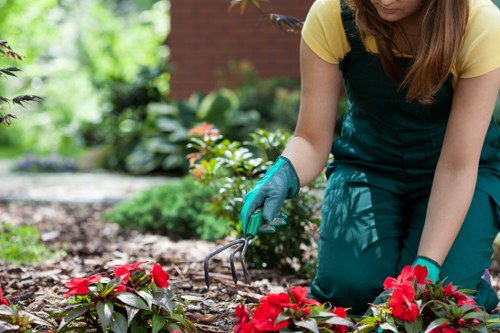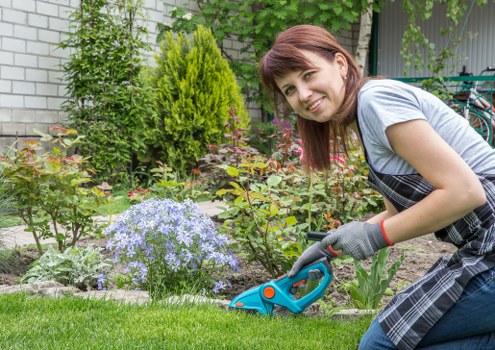Driveway Algae Removal in Harlow: Keep Your Driveway Clean and Safe

Understanding Algae Growth on Driveways
Algae growth on driveways is a common issue, especially in damp and shaded areas like Harlow. Understanding how algae forms can help you tackle the problem effectively.
Algae thrives in moist environments where there is limited sunlight. Driveways made of porous materials like concrete or paving stones are particularly susceptible. Over time, the accumulation of moisture and organic matter creates the perfect breeding ground for algae.
Ignoring algae growth can lead to slippery surfaces, which are hazardous for both pedestrians and vehicles. Additionally, it can cause staining and deterioration of your driveway materials.

Causes and Effects of Algae on Your Driveway
The primary cause of algae growth is the persistent dampness and lack of adequate sunlight. Harlow's climate, with its frequent rainfall and humidity, exacerbates this issue.
Algae not only makes your driveway look unsightly but also weakens the structural integrity of the surface. Over time, this can lead to cracks and potholes, increasing maintenance costs.
Moreover, the slippery nature of algae can pose serious safety risks, especially during the wet seasons. It's essential to address algae growth promptly to maintain the safety and longevity of your driveway.

Effective Methods for Removing Algae
There are several effective methods to remove algae from your driveway in Harlow. Choosing the right technique depends on the severity of the algae growth and the type of driveway surface.
Pressure Washing: This is one of the most effective ways to remove algae. A high-pressure washer can blast away the algae without damaging the driveway surface.
Chemical Cleaners: Algae-specific cleaners contain ingredients that kill algae spores. Ensure you use environmentally friendly products to protect surrounding vegetation.

Preventative Measures to Keep Algae at Bay
Preventing algae growth is easier than dealing with it. Implementing a few simple measures can keep your driveway algae-free.
- Improve Drainage: Ensure proper drainage to reduce moisture accumulation on your driveway.
- Increase Sunlight Exposure: Trim overhanging branches to allow more sunlight to reach your driveway.
- Regular Cleaning: Keep your driveway clean from debris that can trap moisture and promote algae growth.
By adopting these preventative measures, you can significantly reduce the chances of algae returning to your driveway.

Choosing the Right Algae Removal Service in Harlow
Selecting a reliable algae removal service is crucial for effective and lasting results. Look for companies with experience in treating various driveway surfaces and using eco-friendly products.
Check for customer reviews and testimonials to gauge the quality of their services. A professional team will assess your driveway's condition and recommend the best treatment plan.
Additionally, inquire about their maintenance packages to ensure your driveway remains algae-free in the long term.
Local Expertise: Areas Surrounding Harlow
Harlow is surrounded by several areas that may also require driveway algae removal services. Understanding the local geography helps in choosing a service that covers your area efficiently.
Nearby areas include Buckhurst Hill, Grange Hill, Great Parndon, Sheering, Stapleford, Stansted Mountfitchet, Roydon, Loughton, Wakes Colne, Hertford, Bishop's Stortford, Ashdon, Sawbridgeworth, Broadley Common, and Hounslow. Each of these areas has unique features and environmental conditions that can influence algae growth.
Local service providers are familiar with these regions and can offer tailored solutions to keep your driveway clean and safe.
Frequently Asked Questions
1. How often should I clean my driveway to prevent algae growth?
Regular cleaning every 3-6 months can help prevent algae growth. However, in high-moisture areas, more frequent cleaning may be necessary.
2. Are there eco-friendly solutions for algae removal?
Yes, there are several eco-friendly algae removal products available. These products effectively kill algae without harming the environment.
3. Can algae damage the structural integrity of my driveway?
Yes, prolonged algae growth can weaken the driveway surface, leading to cracks and deterioration over time.
4. Is pressure washing safe for all types of driveways?
Pressure washing is generally safe for most driveway surfaces. However, it's important to use the appropriate pressure level to avoid damage.
5. How long does it take to remove algae from a driveway?
The time required depends on the extent of algae growth. Minor stains can be treated in a few hours, while more severe cases may take a day or more.


